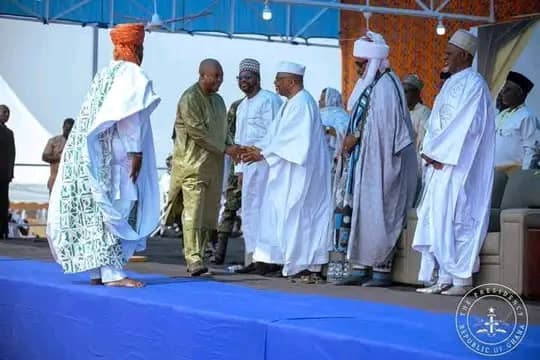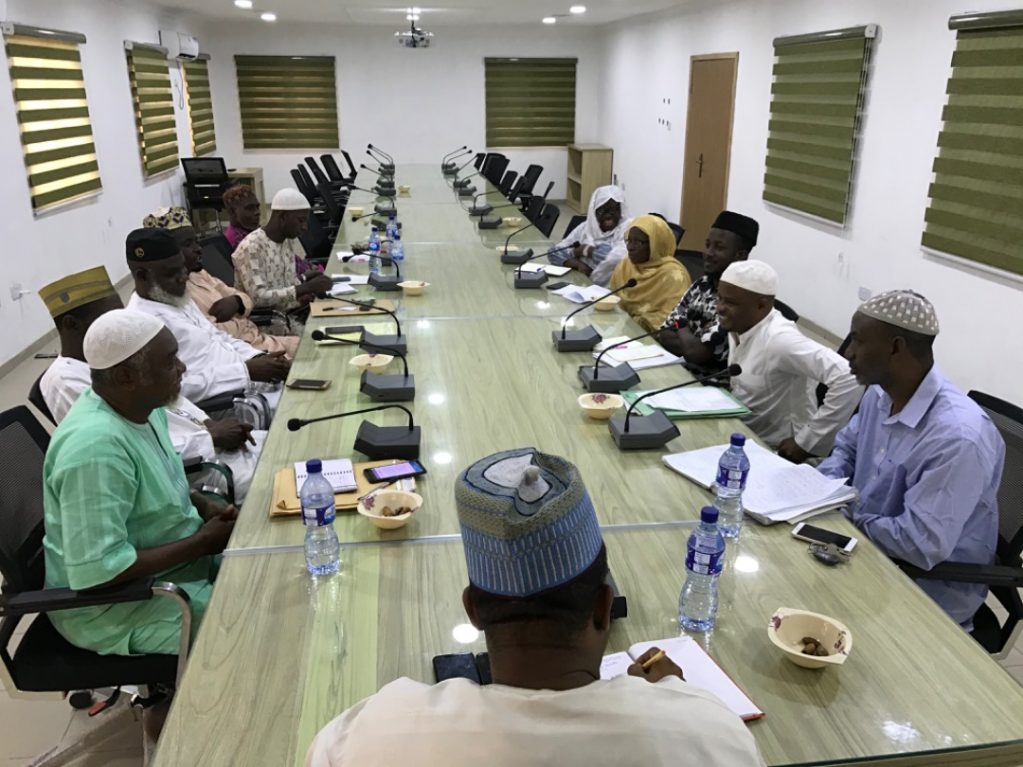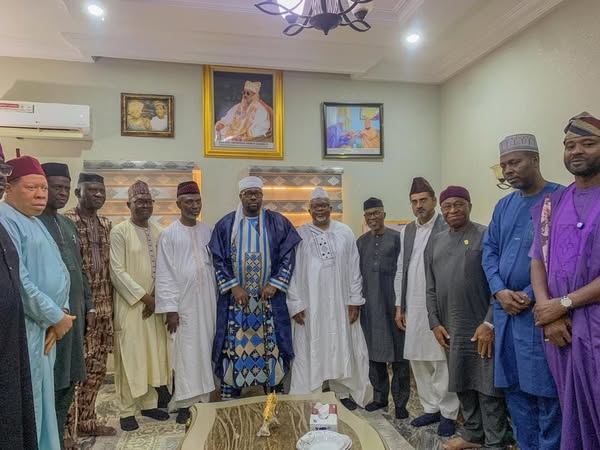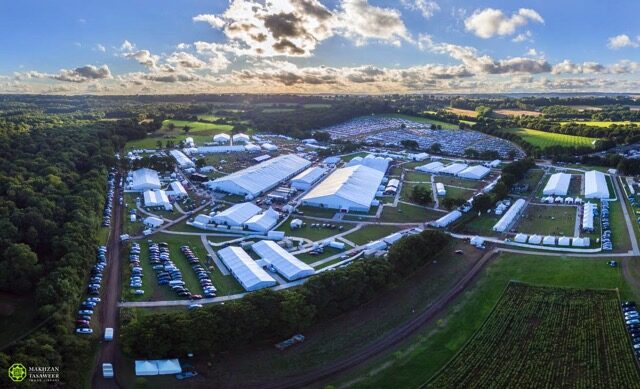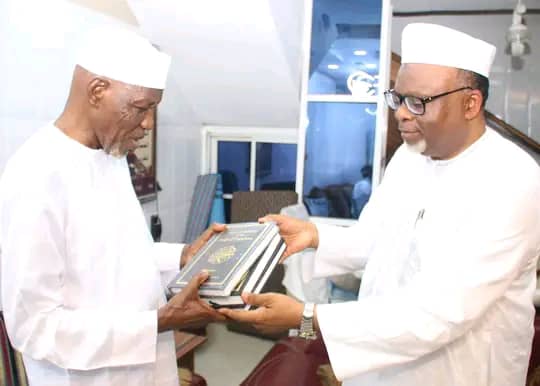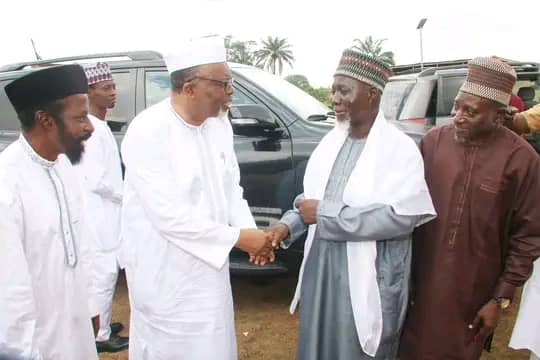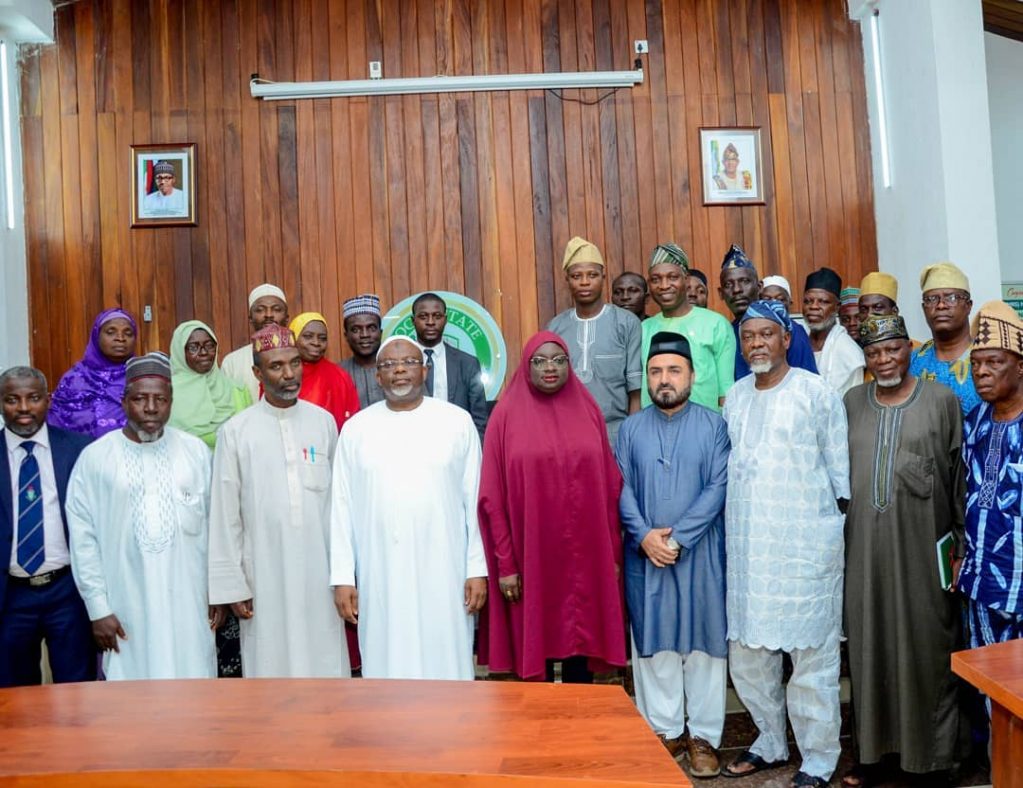In a landmark event, the Ahmadiyya Muslim Jama’at of Nigeria proudly commissioned the Masroor International Technical College in Ilaro, Ogun State, a milestone celebrated as a visionary step towards youth empowerment and economic self-reliance. The inauguration was graced by His Excellency, the Governor of Ogun State, Prince (Dr.) Dapo Abiodun, who was ably represented by Mrs. Oloko Oluwatosin Moriamo, Permanent Secretary, Ministry of Education, Science and Technology. The distinguished Amir of the Ahmadiyya Muslim Jama’at of Nigeria, Alhaji Alatoye Folorunso Abdul Azeez sahib, presided over the ceremony, with notable dignitaries within and beyond the Jama’at. Among the distinguished guests were Maulana Rana Akram, acting Missionary in Charge; Alhaji Mufadil Bankole, Naib Amir Finance and Administration, who also serves as the Head of the International Association of Ahmadi Architects and Engineers (IAAAE) in Nigeria; Arc. Akram Ahmedi, European Head of IAAAE; and Engr. Umar Ahmad sahib, IAAAE Head for Africa. Royal Fathers, including His Royal Majesty Oba Buhari Ololade Makinde, the Oniwoye of Iwoye, and Oba Saheed Olubiyi, the Onidogo of Idogo-Yewa, also graced the occasion, lending their support to this pivotal initiative. Other eminent personalities present included the Rector of the Federal Polytechnic, Ilaro, and esteemed representatives from the National Board for Technical Education (NBTE) and the National Business and Technical Examinations Board (NABTEB), all of whom expressed their admiration for the Jama’at’s commitment to Nigeria’s educational advancement. The Masroor International Technical College is set to offer highly relevant technical programs such as Electrical Installation, Refrigeration and Air Conditioning, Plumbing and Pipe Fitting, Computer Hardware Maintenance and Repairs, Software Engineering and Web Development, and various building skills, including Bricklaying, Concrete Work, Masonry, and Tiling. These courses were carefully selected to address current industry needs, thereby equipping students with essential skills to enhance their employability and foster self-sufficiency. Guests at the commissioning lauded the Ahmadiyya Muslim Jama’at for establishing this institution, acknowledging the critical role it will play in reducing unemployment and preparing graduates for careers in the ever-evolving technical and industrial sectors. By promoting skill acquisition and hands-on experience, the college provides a viable path to self-reliance, enabling graduates to contribute meaningfully to society and the economy. The occasion also highlighted the pressing need for more government support in establishing similar technical institutions nationwide. Such expansion, attendees emphasized, would empower Nigeria’s youth with practical skills, reducing the unemployment rate, fostering economic independence, and encouraging an entrepreneurial spirit. The Masroor International Technical College stands as an exemplary model, demonstrating how education and training can transform lives, inspire communities, and strengthen the nation. In conclusion, the inauguration of this college marks a new chapter in the educational landscape of Ogun State and Nigeria at large. Through this commitment to technical education, the Ahmadiyya Muslim Jama’at of Nigeria reaffirms its dedication to the advancement and prosperity of the nation, laying the foundation for a skilled, self-reliant generation poised to meet the challenges of the future.

